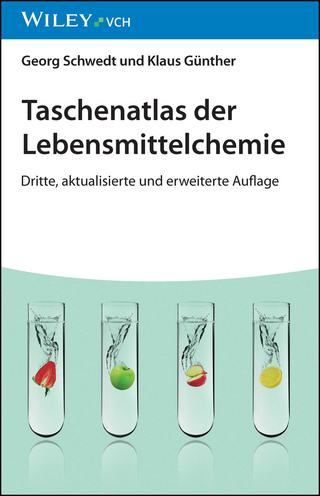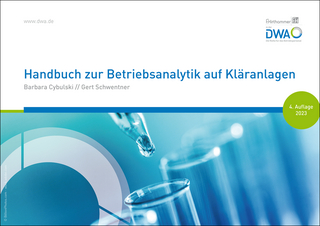
Electrochemistry and Engineering of Fuel Cells
Royal Society of Chemistry (Verlag)
978-1-84973-044-0 (ISBN)
- Titel wird leider nicht erscheinen
- Artikel merken
This new textbook is aimed at students, researchers, teachers, engineers, technology experts, entrepreneurs and developers of fuel cells. It comprehensively covers fuel cell science starting from an introduction to the basics of fuel cells, through performance evaluation, applications, balance of plant, fuel processing, system diagnostics and laboratory procedures to mathematical modelling. There are also separate sections on cell and stack operation, and system engineering and economic factors are also included. The first few chapters deal with classification and history of fuel cells, the basic thermodynamics of a fuel cell, the electrochemistry of fuel cells, transport phenomena and other limitations to cell performance. These chapters also examine the transport phenomena of mass, momentum, and energy. There are separate chapters on the various major types of fuel cells, such as the alkaline fuel cell, phosphoric acid fuel cell, proton exchange membrane fuel cell, molten carbonate fuel cell and solid oxide fuel cell. The book contains new chapters, which are not frequently found in books dealing with fuel cells and are useful to fuel cell students and practitioners.
Such chapters are impedance spectroscopy applied to fuel cells, modelling of fuel cell electrode processes, new developments dealing with biofuel cells, microbial fuel cells, micro-fluidics and hybrid battery-fuel cell types, etc. The chapters on fuel processing and direct alcohol fuel cells have the latest developments and the sections on non-Nafion(r) type membranes and desensitization of fuel cell anodes against impurities are of added importance. For each type, the book describes major advantages, disadvantages, future challenges, operational methods, typical cell components and configurations with the typical designs of stacks and systems, materials used and construction methods, the influence of various operating and design parameters on output. This student friendly book deals with sufficient thermodynamics, electrochemistry, catalysis, mathematical modelling, experimental methodology, engineering, economics and practical examples. As the authors are experienced not only in fuel cells, but also in catalysis, physics, materials science and technology transfer, the book gives a comprehensive outlook with a balanced perspective.
It is well illustrated with figures, tables, pictures, schema and examples and features exercises and a question bank for the benefit of teachers and students.
Dr K Ravindranathan Thampi gained an MSc from the University of Kerala, India and a PhD from the Indian Institute of Technology (IIT) in Madras, India. Subsequently he worked in petroleum processing where during this period, he was involved with the successful scaling up of a laboratory catalytic process from laboratory to production stage. He then joined EPFL in Lausanne, where he is now a senior scientist and group leader, teaching renewable energy processes, solar cells and hydrocarbon processing. The main area of his research is related to fuel cells, nanomaterials, photo and heterogeneous catalysis, solar energy conversion, quantum dots and sensors. Besides his own research activities, he is also the manager of several national, industrial and international research projects and several of his patents and research findings have been licensed by EPFL to industries. He has received several fellowships and awards for study, research and project management and has published about 90 research papers in international peer-reviewed journals and books. He has presented several invited plenary talks in energy related international conferences and has also served as a member of the International Energy Agency (IEA) committee to formulate the 'Recommended Practices on Electrochemical Characterization of Solid Oxide Fuel Cells (SOFC)'. Dr Augustin J McEvoy gained his primary degree from Queen's University, Belfast, and an MSc in acoustic physics from the Catholic University of America, Washington DC with a Fulbright Fellowship. His doctorate in Surface Physics from the University of Ulster, Northern Ireland, was awarded in 1972. He has 35 years' teaching and research experience, particularly in surface and interface physics with application to energy conversion devices, including photovoltaics and fuel cells in the USA, West Indies, Ireland, Italy, Germany and Switzerland, evidenced by some 175 published papers, conference contributions etc. He was Operating Agent for the launch of the IEA SOFC annex and is an associate editor and reviewer for journals, as well as an evaluator of research for French, German, Italian and international organisations.
| Reihe/Serie | RSC Energy Series ; v. 17 |
|---|---|
| Mitarbeit |
Herausgeber (Serie): Julian C. R. Hunt |
| Zusatzinfo | 275 black & white halftones |
| Verlagsort | Cambridge |
| Sprache | englisch |
| Maße | 156 x 234 mm |
| Themenwelt | Naturwissenschaften ► Chemie |
| Technik ► Elektrotechnik / Energietechnik | |
| ISBN-10 | 1-84973-044-X / 184973044X |
| ISBN-13 | 978-1-84973-044-0 / 9781849730440 |
| Zustand | Neuware |
| Haben Sie eine Frage zum Produkt? |
aus dem Bereich


